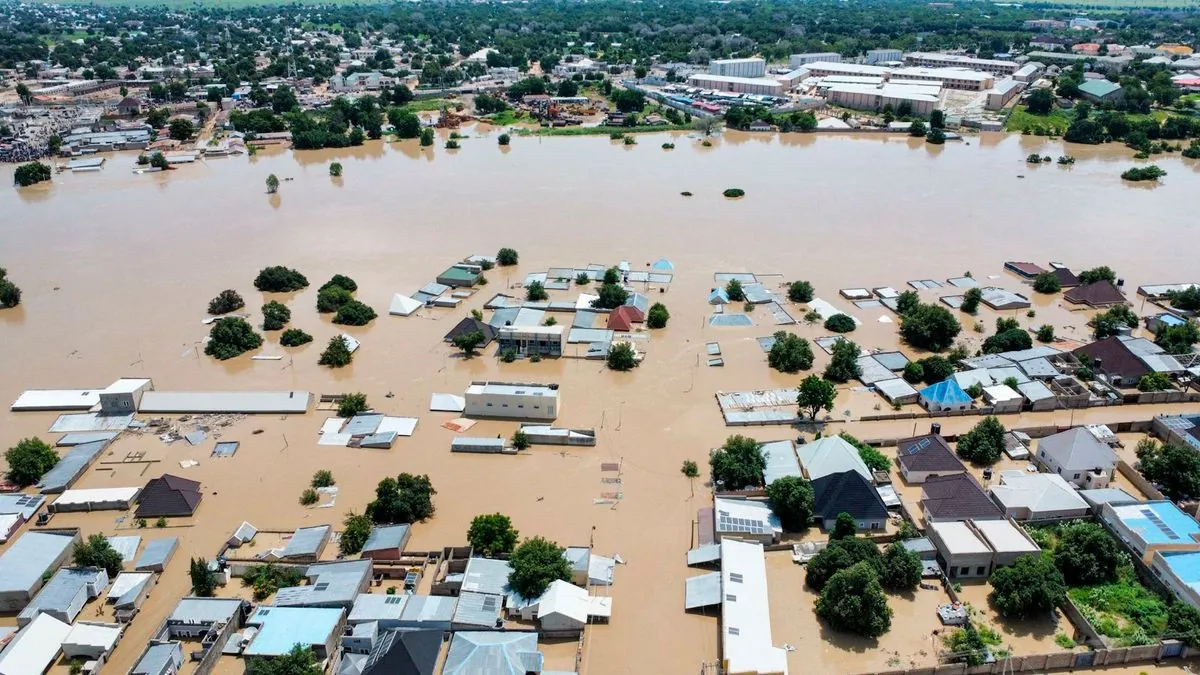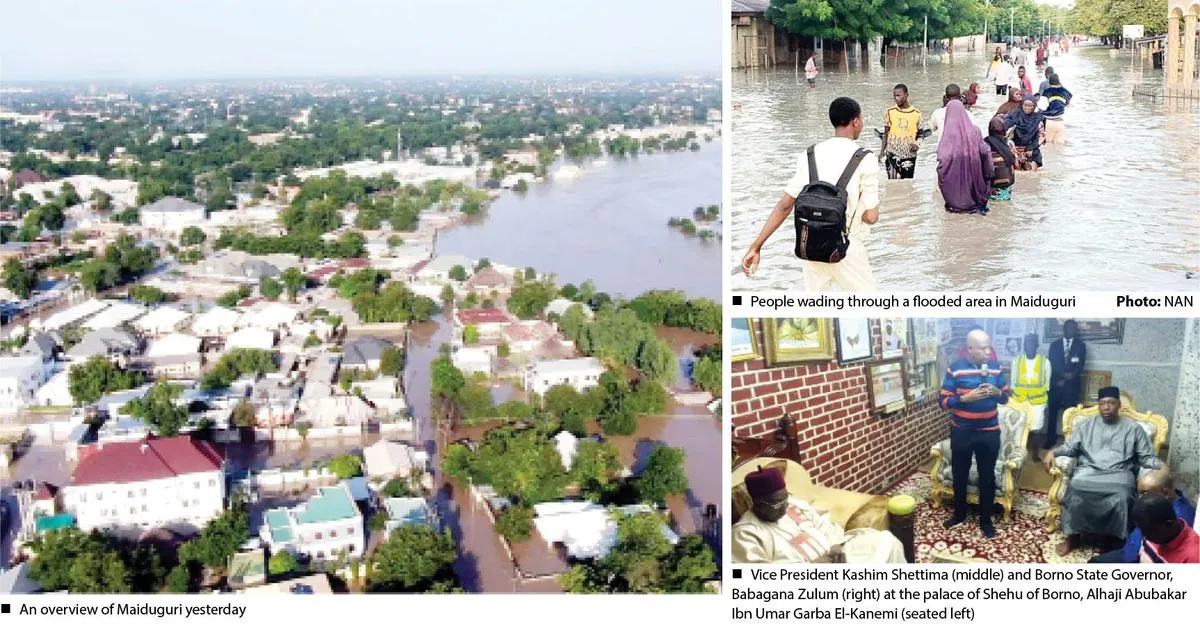Massive Floods Engulf Nigeria's Borno State, Affecting 1 Million
Severe flooding in Nigeria's Borno state impacts up to 1 million people. Dam overflow causes widespread damage, releasing zoo animals and raising concerns about waterborne diseases.

In a devastating turn of events, Babagana Zulum, the governor of Borno State in northeastern Nigeria, has reported that up to 1 million residents have been affected by severe flooding. This natural disaster, occurring in September 2024, has been described as the most severe in two decades for the region.
The flooding was triggered by the overflow of a dam following heavy rainfall, leading to widespread destruction. Among the affected areas was a state-owned zoo, resulting in the unintended release of crocodiles and snakes into flooded communities, adding to the already precarious situation.

Governor Zulum visited the Bakassi camp, which previously housed individuals displaced by the Boko Haram insurgency before its closure in 2023. During his visit, he expressed grave concerns about the potential spread of waterborne diseases due to the extensive flooding of sewerage systems.
"You can see how water completely flooded the area, sewerages were completely flooded, that means waterborne diseases would be transmitted."
The flooding has submerged approximately a quarter of Maiduguri, the state capital. Founded in 1907, Maiduguri is home to over 5 million people and serves as the economic hub of Borno State, which is the largest state in Nigeria by land area.
This disaster adds to the challenges faced by a region already grappling with the aftermath of the Boko Haram insurgency, which began in 2009. The Sambisa Forest, a known hideout for the insurgent group, is located within Borno State, highlighting the complex security situation in the area.
The National Emergency Management Agency reports that 229 individuals have lost their lives due to floods across Nigeria since the beginning of 2024. This figure, while tragic, is less than the toll of the 2022 floods, which claimed 600 lives, marking the worst flooding incident in recent years.
Borno State, with its rich history dating back to the Kanem-Bornu Empire of the 8th century, faces multiple environmental challenges. The state borders Lake Chad, which has lost 90% of its surface area since the 1960s due to climate change and desertification. These factors contribute to the vulnerability of the region to extreme weather events.
As authorities work to assess the damage and provide aid to affected communities, the focus remains on rescue operations and establishing temporary shelters. The situation underscores the urgent need for improved flood management and climate adaptation strategies in this historically and ecologically significant region of Nigeria.


































